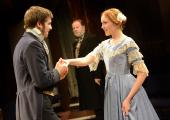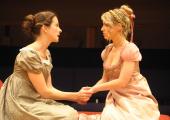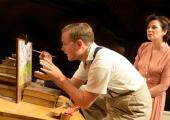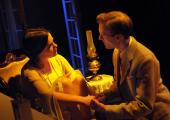Orange Tree Theatre Festival, Programme 1, Orange Tree Theatre
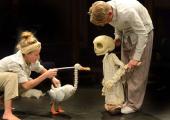
Sam Walters bids a varied and intriguing farewell to the playhouse he founded
Sam Walters, Britain's longest-serving artistic director of a theatre (43 years!), looks to the past as well as the future with his Orange Tree swansong. This varied festival features nine plays and six world premieres across two programmes, all of them staged by returning graduates of the Richmond venue's trainee director scheme. The diligent Programme One viewer will spot a number of recurring subjects, including science teachers and astrophysicists, the resurfacing in adulthood of childhood dynamics, and constant grappling with faith and mortality.


